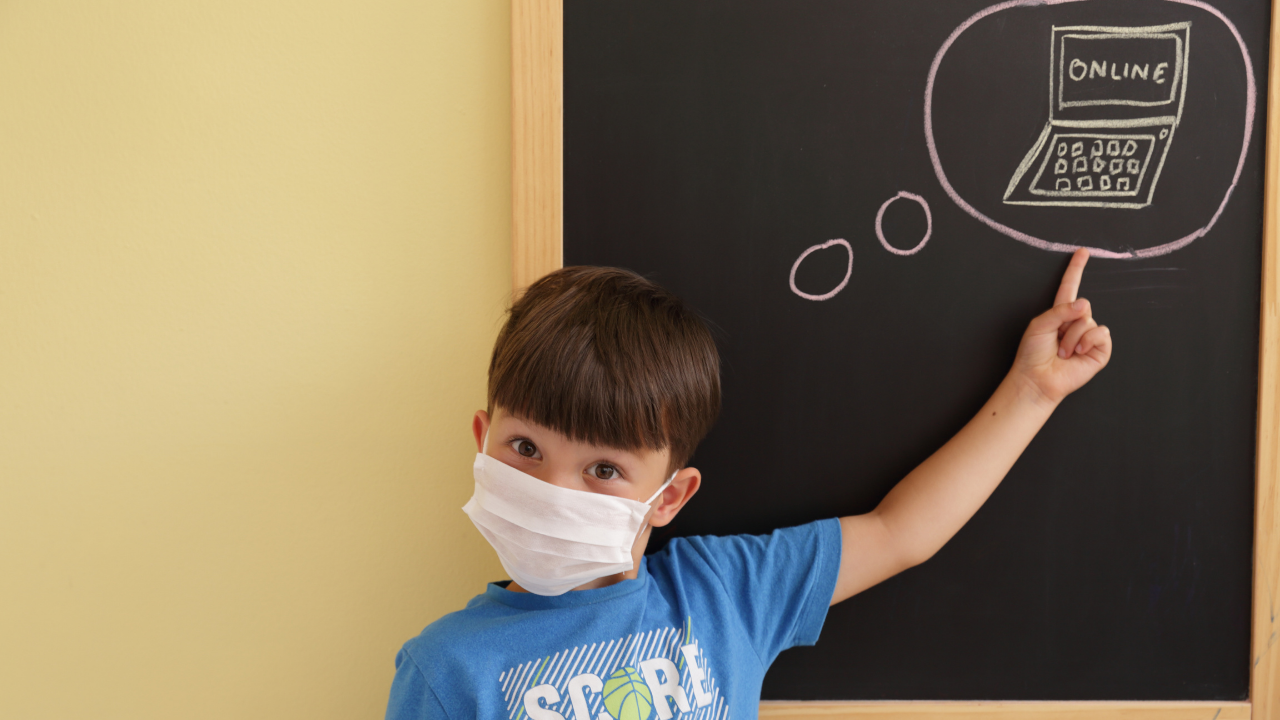Teach Your Special-Needs Child Independence

One of the most important tasks of parents is to teach their children to be independent adults. The reality is that some children with disabilities may never be able to live on their own. Others may be able to live with assistance, or still, others may learn to manage their obstacles to the point that they can be entirely independent. Regardless of what future seems likely for your child, you must prepare them to be as self-reliant as possible.
Do not do for him what he could do for himself.
As you go about your child’s daily care routine, ask yourself, is this something my son/daughter could do? Why am I doing it instead of teaching him how?
Give responsibilities.
What daily chores could your child manage? Can he hold a broom and push it around? Can she wipe the table with a cloth? Treat your child as though he or she is capable of doing the chores. They should have things to do around the house like everyone else.
Focus on basic life skills, and go from...
What is your parenting style?

Let me start by saying that none of us is perfect, and no one is a perfect parent. In fact, rather than talking about “good parents” versus “bad parents,” I like to use the term “the good enough parent.” As “good enough” parents, we provide for our children and try our best to keep them safe. We are trying to raise them the best we can, even if our methods are not always effective.
We all may feel ineffective and inadequate managing our children at times, but believe it or not, getting through those tough periods in our lives can be the most meaningful thing that we can do. It can lead to stronger connections with our kids. We need to understand that parenting is all about the ups and downs, and not just the good stuff. And through these ups and downs, we can then learn and grow up together with our children. So we should keep trying our best as a parent and do not give up, even if we do not think we’re making a difference...
Are you a helicopter parent?

More often than not when a child is diagnosed with special needs, parents will naturally become “helicopter or lawnmower parents” i.e. hovering over their children all the time or helping their children to overcome any problem all the time without the children getting the benefits of dealing with any problem on their own. They become bodyguards of their children when they are out in the open, catching them before they fall and praising them without any actual effort.
Understanding their disability and offering help when appropriate is different from overdoing it. Things are harder when the parents only have one child and this can lead to self-pity and the ‘I am not doing enough” mode. The simple rule is you cannot always pave a straight line of success. Children need to draw their own lines and define their own paths with only a little guidance from you.
Allow your child to take safe risks. This does not suggest allowing your child to be harmed. Grant...
Tips for kids with Special Needs to Wear a Mask

We are living in a time where mask-wearing is now a necessity for our survival. But mask-wearing can be a difficult task for kids and especially with kids with special needs and kids with sensitivity issues. Kids might feel itching or ticklish, resent to wear masks and have meltdowns. All these can make life difficult for parents and guardians. So, here are some tips to help kids adapt to wearing a mask.
1. Explain why wearing a mask is necessary.
- Use easy to understand language and positive phrasing.
- Use picture and video aids.
- Social story.
2. Show photos that mask-wearing is the norm.
- Ask family members and friends to take a photo with a mask on.
3. Take small steps to get used to wearing a mask.
- Holding the mask.
- Put the mask on your kid's face.
- Pull the elastic around the ears. If it is uneasy, stitch buttons on either side of the elastic using your kids favourite cap and use that instead of wearing it around the ears.
- Let the child wear for a...
Awakening

I’ll never forget the date, August 31 2011, when our only daughter Sophie had her first seizure due to high fever (40 degrees Celsius). Thereafter, she experienced another seizure the following day. That was the start of our special journey with Sophie.
Sophie was diagnosed with autism spectrum disorder when she was 2 years old. Right after her seizure episodes, we met a number of neuro paediatrician doctors, followed by a neurodevelopmental paediatrician to accurately assess Sophie’s condition.
The doctors initially diagnosed Sophie with attention delay. She underwent a lot of clinical tests to assess her brain condition such as electroencephalogram (EEG) and etc. She also went to an occupational therapist (OT) as the initial program was recommended by her doctor. Thereafter, when she reached 3 years old, Sophie’s neurodevelopmental paediatrician gave the official assessment that Sophie has autism spectrum disorder and she needed to...
Creating Rhythm ….. A Gift of Love for your Child

Rhythm is a word often used in music, but in this blog, it means ‘a smooth flow of daily activities of a child.’ A daily rhythm can be understood as a natural impulse like breathing. And this daily rhythm, if followed from early childhood, can impact a child’s healthy development.
A daily rhythm should not be misunderstood as a routine.
Routine is a set of the scheduled number of activities to be done throughout the day; whereas rhythm is more flexible and it defines a smooth flow of activities during the day.
Creating a balanced rhythm for young children during the day is a tool to make parenting easier. It helps young children to have an understanding of time, which is an abstract concept for them. Rhythm also creates a sense of predictability and security in them.
A balanced rhythm follows the concept of ‘breathing in’ and ‘breathing out’. As breathing in and out happens naturally, uninterrupted and in a smooth, balanced flow...
A guide to Parenting Children with Special Needs

Welcoming a specially-abled child in your family isn't as easy as falling off a log. Cosmic questions and thoughts halt your consciousness. Where do we go? What to do? and perhaps the most salient of them all, why us?
Conceding that your child is different from normal kids takes you through an emotional roller coaster revolving around shock, denial, guilt, confusion followed by fear, grief, loss, powerlessness, disappointment and rejection. This may seem the end, but it isn't.
Accept your child as he/she is differently-abled. Instead of looking down on him/her and mourning what had happened, embrace the flaws.
Don't dwell on what went wrong. Instead, focus on what to do next. Spend your energies on moving forward together and finding the answer - Denis Waitley
Everyone is different, they will grow and develop at their own pace. Comparing your child with siblings, cousins, kids in the daycare class or even kids with the same disability will not make you feel any better. Your...
Educational Dilemma during COVID!

Since COVID, we may be at a loss of what education is best for our children. But we will need to remind ourselves that while education aims to teach, the evidence of impactful teaching is in effective learning. Education is not about marks scored in tests and exams as these do not reflect intelligence. Education is a life-long learning journey in which the student learns to be confident, self-reliant, and communicates effectively.
Two wrongs do not make a right!
Yes, the situation we are all in because of COVID is wrong from every angle. And with confinement, our anxieties are getting magnified many folds. The biggest anxiety parents are experiencing is the concern they have about their child’s access to school. Schools are closed and when they will restart is unknown to you or me or anyone, from India to America to Argentina! When schools do reopen, what the situation will be like and how children will stay safe, is another question, with no answer!
Now comes the...
Parenting matters!

“Children are NOT a distraction from more important work. They are THE MOST important work.”
-C.S. Lewis
Parenting these days is a far more challenging task than it was ever before. The question that plagues young parents the most is, which is the best style? Whatever style of parenting one adopts it will have an impact on the child’s overall development.
There are four major parenting styles and each parent uses one or the other, based on the situation. Usually, one of them becomes their dominant parenting style. These can be loosely categorized into the following.
Authoritarian: In this style of parenting, children are expected to follow the strict rules established by the parents and failure to follow the rules usually results in punishment.
Authoritative: These parents establish rules and guidelines that their children are expected to follow but they explain the reasons for laying them down. When children fail to meet expectations, they are nurturing and...
When Parents change, so do their children.

The content of this article is derived from a video by Global Autism Solutions, particularly by Gerd Winkler, the director of the establishment, who has had an extensive amount of experience with families of children on the Autism Spectrum. You may find the video, titled “When Parents Change, So Do Their Children”, here.
In this video, parents voiced out their concerns about not being able to change certain “undesirable” behaviours of their children despite many attempts to correct them. Their conversations with Gerd presented important issues that reflected the impact parents have on their children’s learning and challenged them to be aware of their beliefs, assumptions, and judgements they have on their children, which may sometimes be unhelpful. Respecting children’s interest, and refraining from imposing expectations on them are two learning points that can be made from the video.
- Respect the child’s interests
Certain...

